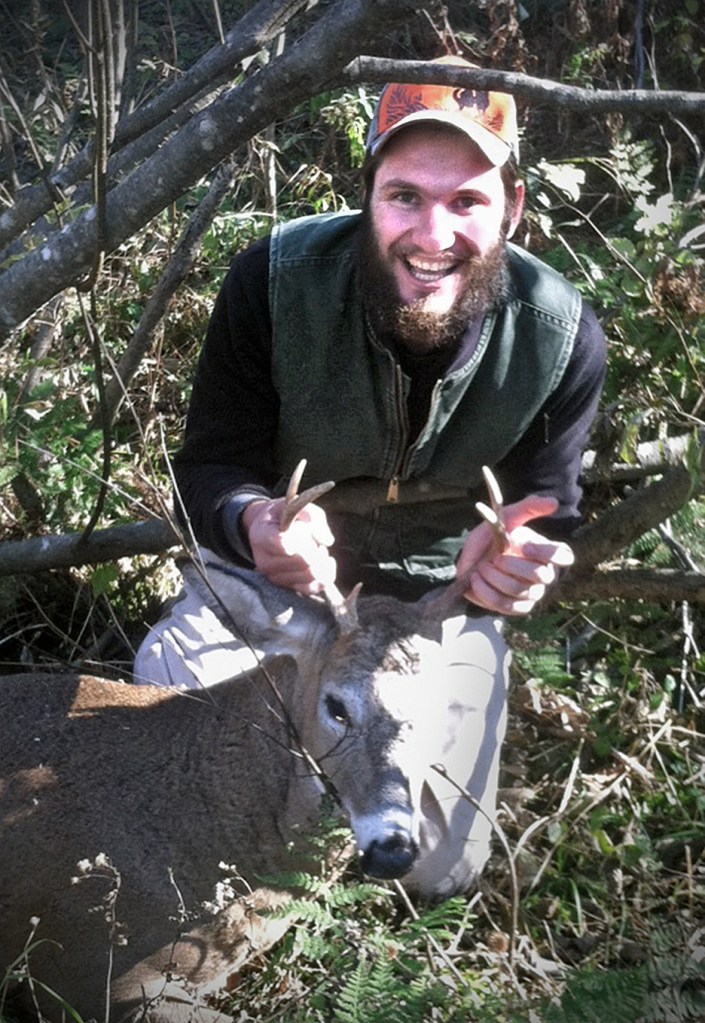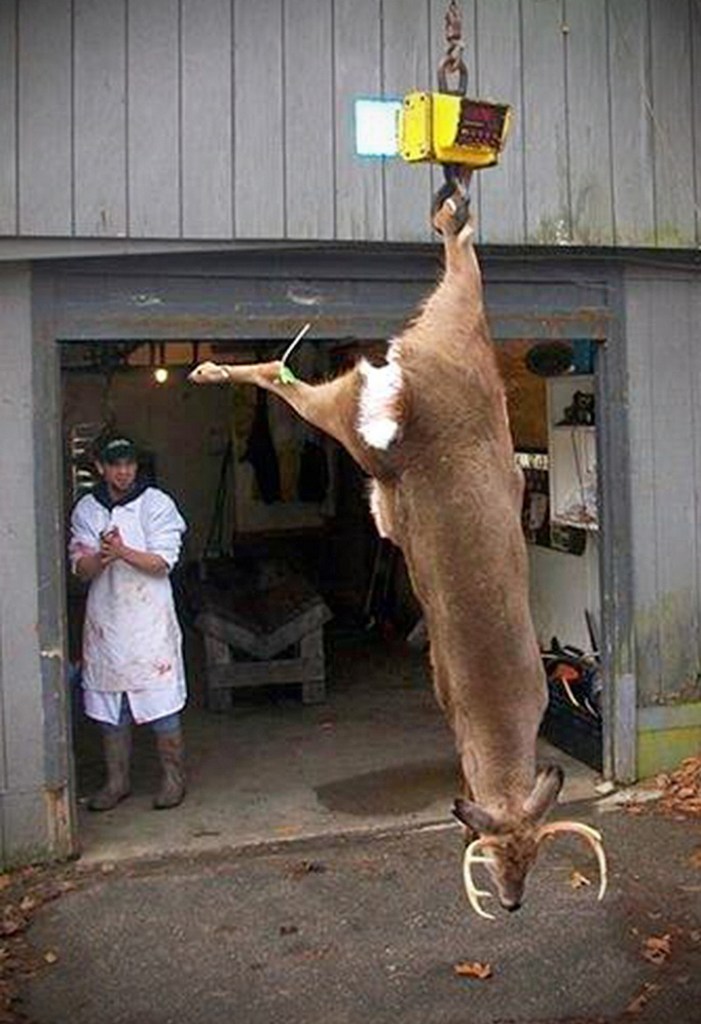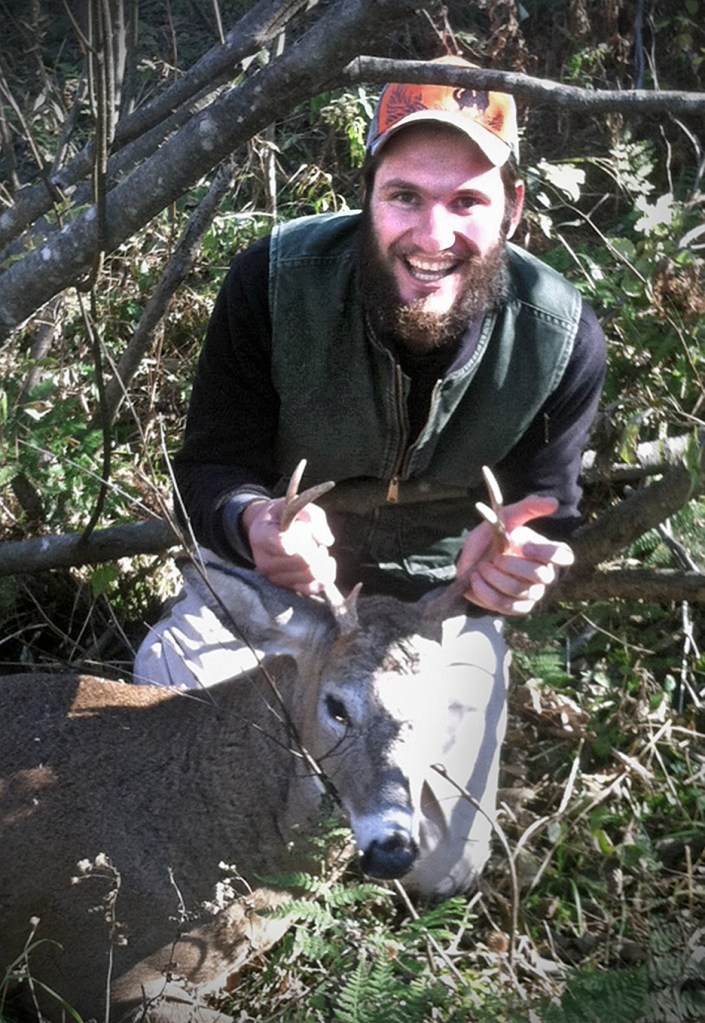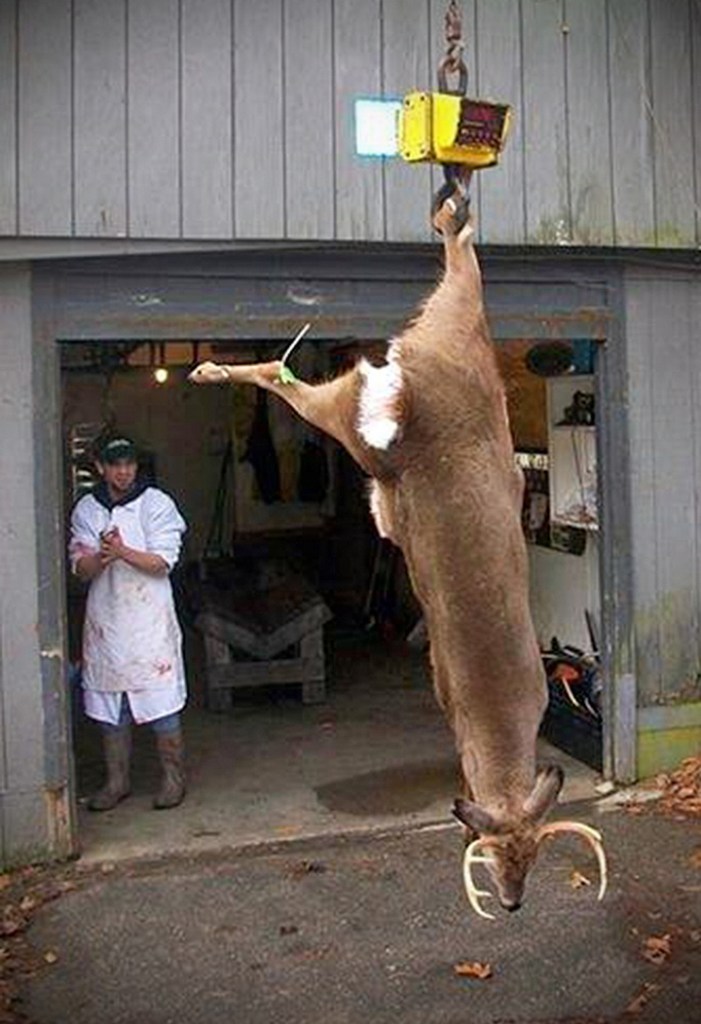John Skvorak had already shot a deer this season and had plenty of meat in his freezer, but he had good reason to tag another in Maine’s expanded archery season.
To give it away.
Skvorak, a 21-year-old hunter from Windham, donated his second deer to the Hunters for the Hungry program, which distributes donated wild game to 245 soup kitchens and food pantries across Maine.
The program was created by the Legislature in 1995, directing game wardens to take game they seize from poachers and donate it to the needy. Hunters started contributing to the program, which collected 3,800 pounds of meat last year, said Jason Hall, director of the Department of Agriculture, Conservation and Forestry’s Emergency Food Assistance Program.
So far in 2013, 5,059 pounds of meat have been collected. And this winter, Hunters for the Hungry will continue its growth by adding game fish to the menu.
Hall said the program remained little-known until recently.
“A lot of sportsmen and women are used to sharing deer and moose meat with family and friends,” Hall said. “But when I came on board three years ago, (Hunters for the Hungry) was the best-kept secret in Maine. I begged my supervisor to let me get on Facebook. Since September, we ballooned from 74 Facebook likes to over 500. It’s not a secret anymore.”
Skvorak was reintroduced to the program by a Facebook posting.
“I heard about it probably six to seven years ago,” he said, and “this year I actually saw it again on Facebook. They did a good job getting their name out there and it reminded me if I had another deer, it was a great way to help people out. I didn’t need any more in my freezer.”
When Skvorak got his second deer of this season, he found that the donation process was a snap. He drove 20 minutes from Windham to a meat cutter in Raymond, where he left the deer. The meat was processed there and later picked up by state workers and brought to a food bank.
Hunters across Maine – particularly bowhunters, who can tag more than one deer in areas where deer are overabundant – are excited to learn of the program.
Grant Owens of Windsor, who has tagged one deer this season, said he will donate the next one to the program if he gets one in the expanded archery season, which runs until Dec. 14.
“My family and I firmly believe it’s our social responsibility to contribute,” Owens said.
GAME FISH ON THE MENU
In January at the Crystal Lake Derby in Gray – one of the most popular ice fishing derbies in southern Maine – the program will partner with Wayside Food Programs of Portland to gather game fish and process them for soup kitchens.
“I think it’s a great idea because there are probably fish that don’t get eaten,” said the derby’s director, Glen Mercier. “And in the kids’ derby, there might be first-time kids catching fish that the family doesn’t know how to cut up and eat. I’m sure there are fish that get wasted, and the food pantry can put it to good use.”
Because Wayside Food Programs has a certified fish-processing facility, it will be able to collect discarded fish and process them for other food pantries.
Don Morrison, operations manager for Wayside Food Programs, even looked to the future and said the opportunity to gather fish from saltwater tournaments could be extraordinary.
“Those are big fish, and the poundage is much greater,” Morrison said. “This is kind of a pilot program at Crystal Lake, to see how it works. I’ll talk to the organizers of (saltwater) tournaments to see if we can do this again.”
Wayside Food Programs focuses on helping to feed the working poor, and Morrison said the influx of wild game this fall has given a boost to the healthy, homemade meals his program offers.
“The grocery stores have really tightened up their inventory and control, so we don’t get as much (donated meat) and it’s really important to us,” Morrison said. “But a few weeks ago, we served a moose stew for dinner to 250 people. I think it was definitely a treat.”
NO COST TO HUNTERS
The Department of Agriculture, Conservation and Forestry pays for processing the hunter-donated meat. Of the 3,800 pounds of meat collected in the program last year, half came from hunters and half came from game wardens who either seized it from poachers or collected it from salvageable roadkill, Hall said.
He said he knows of no other wild-game donation program in the country that is state-funded and state-run.
“Not every state allows wild game in soup kitchens and pantries,” he said.
Most of the programs in other hunting states, such as Virginia, Wisconsin, North Carolina and Texas, are run by nonprofit organizations.
Nebraska established a wild-game collection program last year, but it’s funded through cash donations.
West Virginia’s 22-year-old Hunters Helping the Hungry Program is state-run, but also funded through cash donations. The annual cost of that program is $119,000, according to the West Virginia Division of Natural Resources’ Wildlife Resources Section.
Maine’s program, by comparison, costs just $4,300 a year, for the meat processing and delivery to food pantries, Hall said.
Deirdre Fleming can be contacted at 791-6452 or at:
dfleming@pressherald.com
Twitter: FlemingPph
Send questions/comments to the editors.







Success. Please wait for the page to reload. If the page does not reload within 5 seconds, please refresh the page.
Enter your email and password to access comments.
Hi, to comment on stories you must . This profile is in addition to your subscription and website login.
Already have a commenting profile? .
Invalid username/password.
Please check your email to confirm and complete your registration.
Only subscribers are eligible to post comments. Please subscribe or login first for digital access. Here’s why.
Use the form below to reset your password. When you've submitted your account email, we will send an email with a reset code.